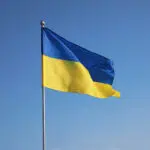The European Day of Remembrance for Victims of Stalinism and Nazism, commemorated every August 23, is also known as Black Ribbon Day. The day is set aside to remember the victims of Stalinism posed by then Union of Soviet Socialist Republics (U.S.S.R.) leader Joseph Stalin and those of Nazism posed by German dictator Adolf Hitler. August 23, 1939, was when the pact Molotov-Ribbentrop was signed. The agreement was between the Soviet Union and Germany. Shortly after it was signed, the Second World War began. The day is to remember the victims of the horrendous acts that occurred during those times.
History of European Day of Remembrance for Victims of Stalinism and Nazism
European Day of Remembrance for Victims of Stalinism and Nazism is one of the two days observed by the European Union alongside Europe Day. The day symbolizes the rejection of extremism, intolerance, and oppression according to the European Union and its purpose is to preserve the memory of the victims of mass deportations and exterminations while promoting democratic values to reinforce peace and stability in Europe.
Black Ribbon Day originated during the era of the Cold War in the 1980s. The refugee communities in Western countries such as the U.S. and Canada marked this day to remember atrocities by the communist regime in Russia that led to the Revolution of 1989. Markus Hess of the Estonian Central Council in Canada coined the name ‘Black Ribbon Day’ where a ribbon was used during protest. From that year on, the agitation was not just held in North America but spread to Europe and the Baltic countries. It was officially recognized by the European Union later. The European Day of Remembrance for Victims of Stalinism and Nazism was made official by the European Parliament in September 2008. The first formal commemoration of this day started in 2011 in Warsaw, Poland.
The unspeakable acts that took place during the Stalinism and Nazism regimes should not be forgotten to remind everyone never to go back. Nazism was known for its oppressive rule and attempting to eradicate a whole race of people simply because they felt they were inferior, leading to what we now know as the ‘holocaust,’ killing about two-thirds of Europe’s Jewish population.
European Day of Remembrance for Victims of Stalinism and Nazism timeline
The Molotov-Ribbentrop pact is signing between Germany and the U.S.S.R.
The holocaust starts as the Nazis target and kill Jews all around Europe.
The revolutionary wave that ends communist rule in Central and Eastern Europe commences.
Western communities of refugees from the Soviet Union establish a remembrance day.
The commemoration of the day proposal is at the European Union during a press conference.
The day is first officially celebrated in Europe.
European Day of Remembrance for Victims of Stalinism and Nazism FAQs
What is Joseph Stalin known for?
He ruled the U.S.S.R. from 1929 to 1953 and was a dictator.
What did Stalin do in WWII?
He industrialized the U.S.S.R., consolidated his position with police terror, and helped defeat Germany.
How did Hitler die?
He committed suicide by shooting himself in his bunker in Berlin.
How to Observe European Day of Remembrance for Victims of Stalinism and Nazism
Wear a black ribbon
Celebrate the day by wearing a black ribbon. This is to show solidarity for those who lost their lives during that period.
Spread awareness
Spread awareness about the day. A simple social media post or organizing an event to commemorate the day would do well to spread awareness.
Watch a movie that focuses on Stalinism or Nazism
Order in a movie that you can watch with friends or family. A lot of movies have been made about Stalinism and Nazism, so it wouldn’t be too difficult to get one to watch.
5 Facts About Adolf Hitler
He was “Time’s” Man of the Year
It is important to know that the award isn’t always meant as an endorsement but as a measure of newsworthiness and impact.
He served time for high treason
After a failed coup by the Nazi party in 1923, Hitler was arrested for his leading role and charged with high treason.
He was Austrian
Despite what many might think, Hitler was actually of Austrian origins but grew to dislike the Austro-Hungarian Empire and expressed loyalty only to Germany.
He was a failed artist
Hitler failed the entrance exam of the Academy of Fine Arts in Vienna twice and it was noted that he had some talent for architectural draughtsmanship but his human figures lacked detail and character.
He survived numerous assassination attempts
Hitler, during his time, survived over 20 assassination attempts.
Why European Day of Remembrance for Victims of Stalinism and Nazism is Important
It remembers victims of totalinarianism
The day remembers victims of totalitarianism. With the number of people who lost their lives and those that were displaced, it is only right to commemorate the ordeal they went through.
It celebrates those that fought against communist rule
As difficult as the times were, some people stood up to fight against the oppression. They should be celebrated as they are heroes.
It reminds the world not to go back to such times
Those times are a dark part of history. The day reminds every nation in the world about the destruction it brought about and not to go back to those times.
European Day of Remembrance for Victims of Stalinism and Nazism dates
| Year | Date | Day |
|---|---|---|
| 2025 | August 23 | Saturday |
| 2026 | August 23 | Sunday |
| 2027 | August 23 | Monday |
| 2028 | August 23 | Wednesday |
| 2029 | August 23 | Thursday |














